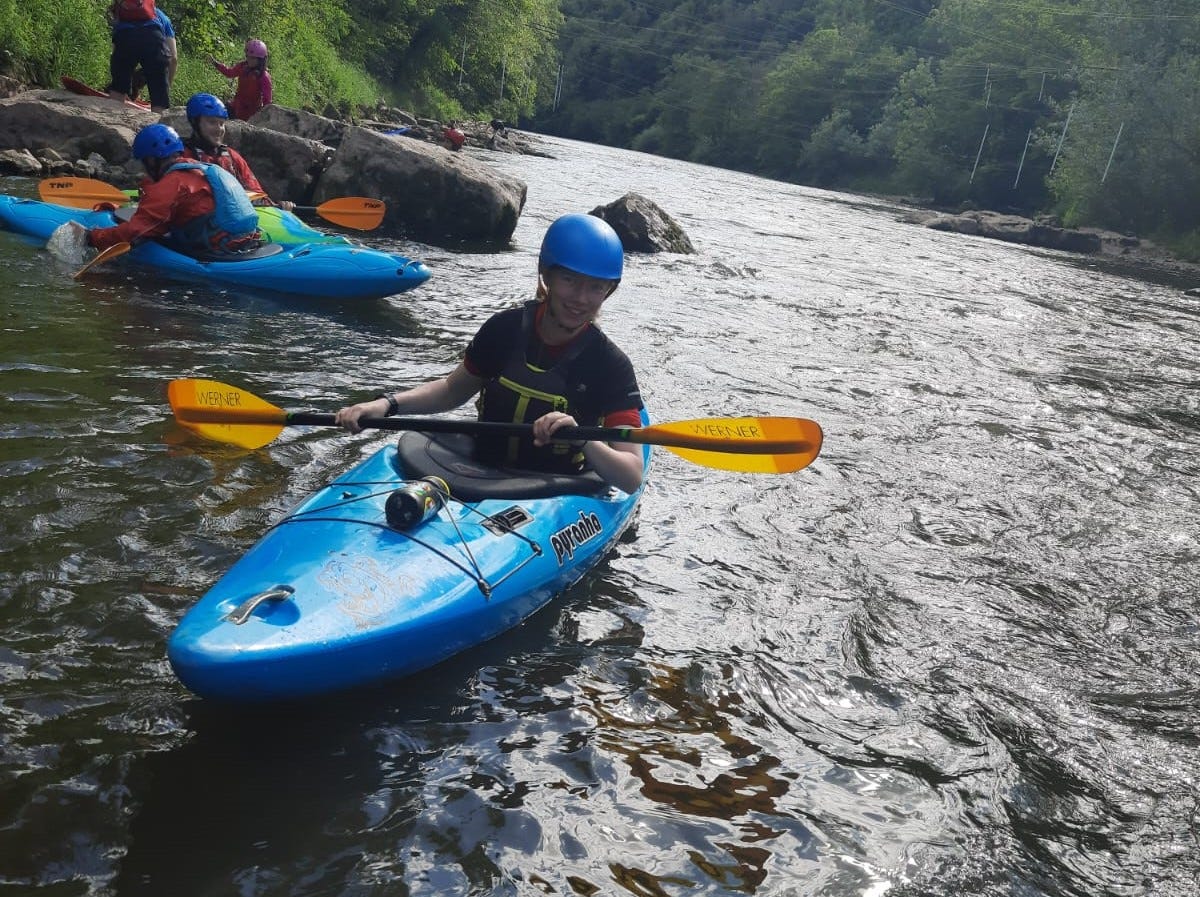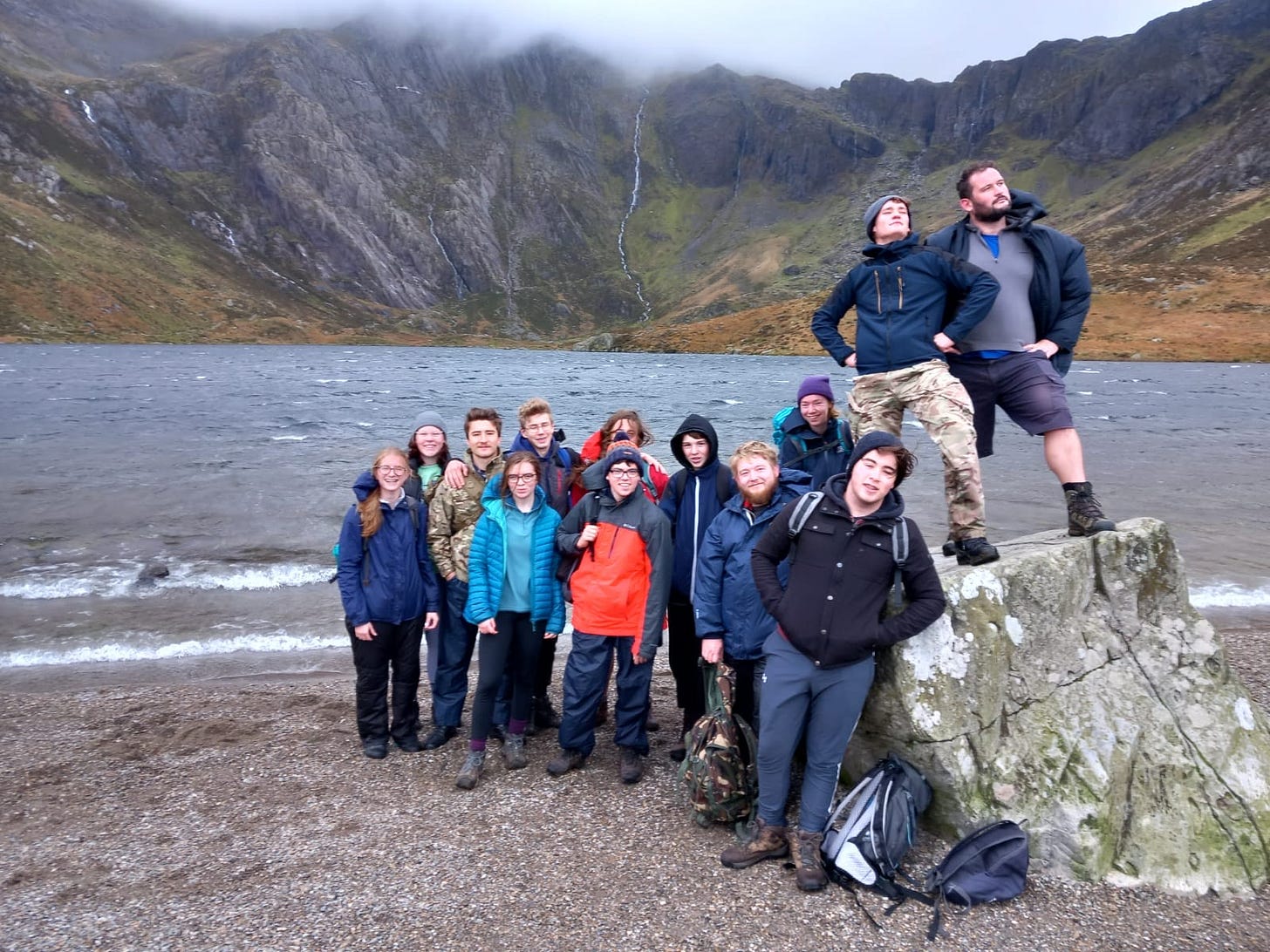When is enough enough?
If you’re always trying to make a difference to your business, how do you know when to call it a day? (Sophie Dollar part II)
In the first post based on our discussion with Leam Boat Centre’s Sophie Dollar, we discovered how she had managed to do so much in such a little time. We also riffed on how you, personally, process information and make decisions. And why being aware of this is important (the Think-Feel-Know way of looking at things). Here we talk to her about the trends in the industry, the challenges she faces and have a look at how you know when you’ve done enough.
WARNING: This article contains questions you may have answers to or thoughts on. If so, seize the moment and share what experience has taught you at the bottom of this page!
Key takeaways
Learn to spot and challenge your own assumptions. (Eg, is your location really an issue or can you turn it into an opportunity.)
Small businesses are a great place to work. But make sure you’re aware of the downsides.
Every day, work out which are your important and which your urgent tasks. (And ignore the rest.)
The joys and challenges of a growing sport
Unlike many small businesses, getting new customers is not one of the top priorities for Leam Boat Centre. Other than Sophie doing a good job, part of the explanation for this is that paddle sports in general are booming. There are perhaps fewer entrants now than at the post-lockdown peak, but as Sophie says:
“More and more people are coming into the sport. And many of those want training and are keen to learn new skills and to learn safety.”
And of the three – canoeing, kayaking and stand up paddleboarding (SUP) – SUP is growing the fastest. It’s an easily accessible sport with a new inflatable board findable at places like Decathlon or Aldi for around the £200+ mark. Barriers to entry like concerns about storage and transport and the perceived entrapment hazards of a kayak are lower too, further encouraging take-up.
But this increased take-up comes with its own challenges. First among this for the conscientious business is dealing with the safety issues. It’s easy for someone who’s just bought a board to get themselves into trouble.
“The cheap paddle boards create this idea that you can just buy the kit and off you go. Paddle boarding has hit the news a couple of times for that reason – it looks so easy!”
The Leam Boat Centre addresses this in two ways, both beneficial to the business. Firstly it sells boards and as part of the sale is able to educate people around safety issues, for instance talking about leashes and where it’s safe to go. It also offers safety training courses, so as well as introducing people to the sport it is able to promote the value of safety skills.
A second challenge is harder to deal with – geography. On the face of it, being Midlands based gives you a recruitment challenge. As Sophie says:
“If you are really into the outdoors you are either into more than just paddle sports or you don’t want to be based in the Midlands, you’ll be based near to mountains and cool white water”.
As with many challenges, Sophie and the centre turn this around. They put a lot of effort into young people. That allows them to encourage people whose home is in the Midlands into the sport. Then, when they turn 18 some do a summer with the centre of which a lot go to university and come back and work for them in the summer.
The joys and challenges of being a small business
Perhaps it’s just the people we’ve met so far, but the outdoors industry is populated with many small businesses and few large corporations. Perhaps this is not surprising: we’ve met so many people who are impressively resourceful and self-driven and not the types to accept mindless bureaucracy peacefully. Small businesses are a natural home for you if you are like this.
Sophie points to some of the downside, though. If you live in a world where everyone just gets things done, you also live in a world with few set procedures.
“It’s almost like you are working with friends more than anything and then if something goes wrong there’s no written procedures. I think that can be a good thing, but it is also a bad thing. It might be nice like, if the people I chat to who work in massive companies, there was an HR team and policies to help you deal with everything.”
Similarly, as with many a small business, there aren’t people employed to do specific businessy tasks. As well as doing what you want to do - guiding and coaching people – you will end up doing things like admin and managing websites and much more. As Sophie says,
“We’re all employed as outdoor instructors and that’s our dream, but it can be frustrating having to dabble and do lots of things where you’re not an expert.”
Business Tip – knowing when you’ve done enough
Thinking about what she’d like to learn from other adventure guides and coaches, Sophie pauses briefly then asks:
“How do people know when they’ve done enough? When I look at all the hours and the amount of work I put in, I’m wondering what the balance is. I like to be busy and I enjoy doing it all, but is there a point where I have to learn to stop and relax? How do I know when to say ‘that’s enough for today’?”
Reflecting on the people we’ve met, many do seem to just rely on a sense of what needs to be done each day or week and then work hard and long to get it all done. The risk is that they often end up doing what’s urgent and not what’s important (see our recent post on “The awesome black bucket of growth!”). Doing that can keep things going for a while, but ultimately feels frustrating as you know you’re not dealing with the big things that will make a difference to your business – or your life.
There are three frameworks that we’ve come across that really do help you understand what’s important and what’s not (however urgent). They are:
Positioning: if you know what you want to be famous for, or what you want your business to be known for, it’s so much easier to focus your time. You develop a stronger instinct for what are important, urgent and totally irrelevant tasks.
Having a Strategy helps you avoid trying to do everything at once. “Strategy” is a posh way of saying “if we do this, then that, then the other we’ll get to where we want to be”. It does of course require you know where you want to be (the answer is in your chosen Positioning).
Finally, and perhaps quite boringly, having a timeline (or what suits call “an execution plan”) helps identify what needs to be done now, what it’s feasible to do now and what can or should wait. Yes, we know dates and deadlines can induce stress and we know that no plan survives contact with the real world, but seeing the flow of what needs doing, by when and by whom is a superpower we don’t think is used enough.
Could it be easier to knock off at the end of the day with a clear head if you know how your time is being spent is guided by these three things?
That’s pretty much it. Let’s end with Sophie’s thoughts for others who are setting out in the outdoors adventures sector:
“Get stuck in. Learn from experience. The outdoors industry is all about learning.”
“Don’t forget the qualifications as well. It’s no good just being good, you do need the bit of paper!”
“Maybe do things slightly more slowly than me and allow time for enjoyment. (But I’m still not really sure if that’s good or bad advice!)”
While we were chatting to Sophie, we talked a fair bit about what makes for a good coach or guide. And how you recognise the not-so-good ones. We liked her answers! So please let us know if you’d like us to cover this topic in a post of its own. Either use the comments below or email us at adventurecollective@substack.com
Related links:
Sophie Dollar Part I - Attitude is all
https://www.facebook.com/sophie.dollar.3






